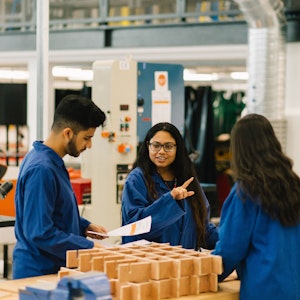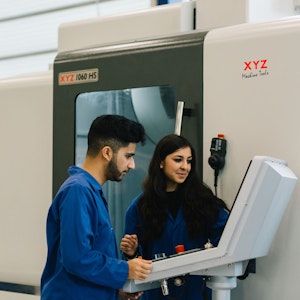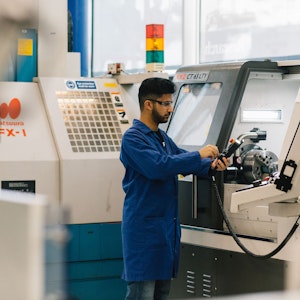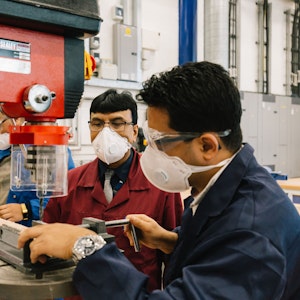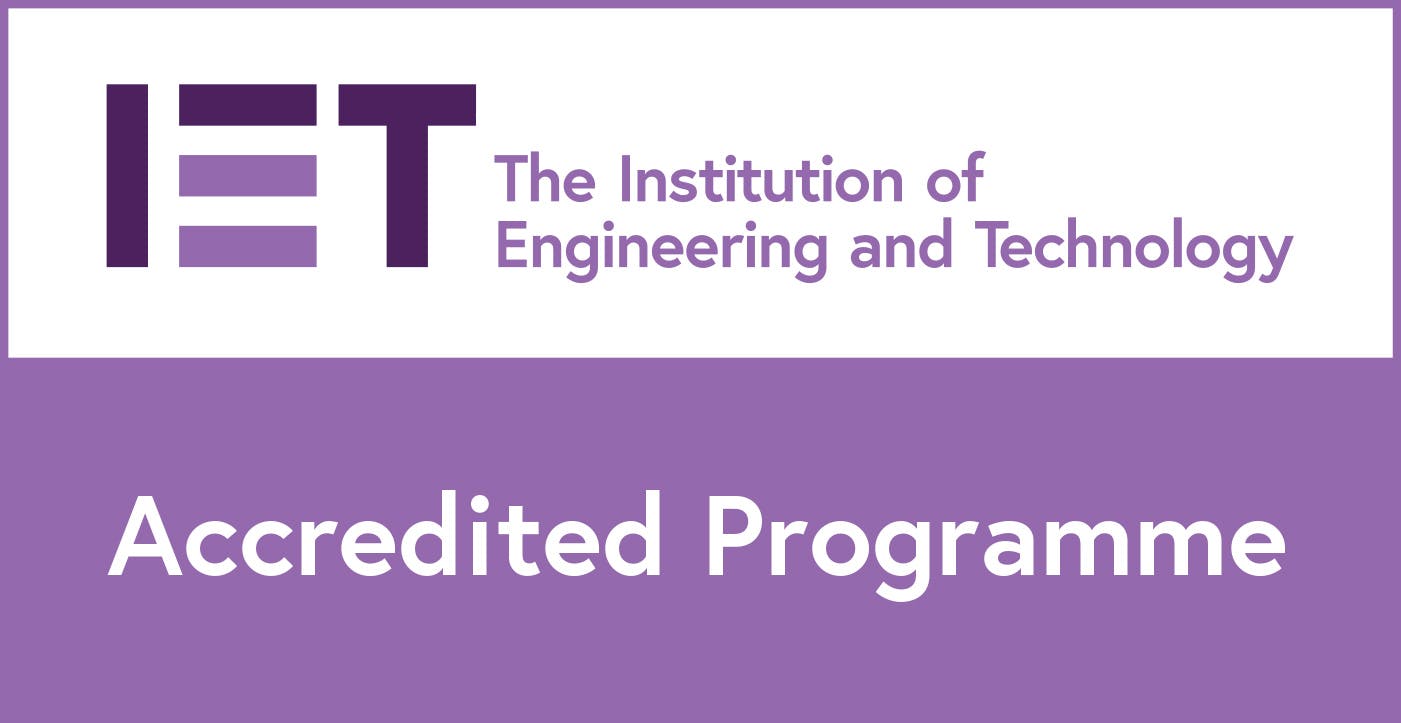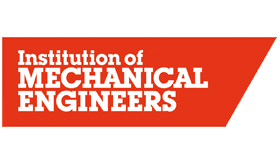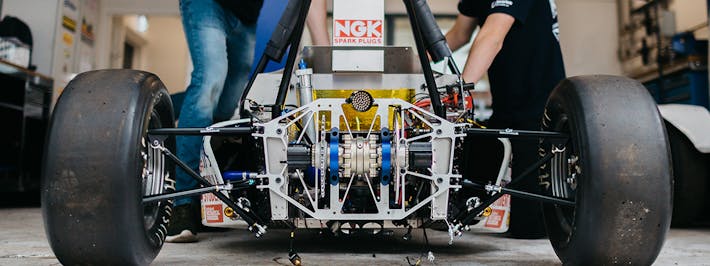
Automotive Engineering - BEng (Hons)
Currently viewing course to start in 2024/25 Entry.
Study our Automotive Engineering BEng degree course and join one of the select UK universities to take part in Formula Student events at Silverstone. Now is a fascinating time to study automotive engineering as you will have the chance to be at the forefront of developments within the industry....
- Level Undergraduate
- Study mode Full Time
- Location City Centre
- Award BEng (Hons)
- Start date September 2024
- Fees View course fees
- School School of Engineering and the Built Environment
- Faculty Faculty of Computing, Engineering and The Built Environment
This course is:
Available with Professional Placement year
Open to International Students
Overview
In today's fast paced world, technology is advancing at an unprecedented rate. From cutting edge developments in artificial intelligence to sustainable energy solutions, engineering at BCU is the forefront of these innovations. Our campus is situated in the heart of the city, providing you with the perfect environment to immerse yourself in the dynamic field of engineering.
The course is designed to equip you with the skills and knowledge needed to tackle real world challenges. As a BCU engineering student, you'll be positioned to make an impact in various sectors, from civil and automotive to renewable energy and beyond. The demand for skilled engineers has never been higher, and the opportunities are boundless.
Companies are actively seeking graduates with practical skills and critical thinking that is taught on this course. We also have strong ties with industry partners, providing you with invaluable networking opportunities. You'll get to access BCU's cutting edge facilities and also benefit from using the specialist equipment over at the GBS IoT.
This is where your engineering journey begins. Embrace the possibilities and engineer a future that makes a difference.
Study our Automotive Engineering BEng degree course and join one of the select UK universities to take part in Formula Student events at Silverstone.
Now is a fascinating time to study automotive engineering as you will have the chance to be at the forefront of developments within the industry. You will get to work in advanced automotive workshops and laboratories equipped with industry-standard equipment, as well as take advantage of more traditional office-based facilities.
We ensure you gain practical experience, in particular via our BCU Formula Student racing team, so that you are equipped to apply engineering science to real life situations.
What's covered in this course?
Our Automotive Engineering course is designed to develop you as an engineer able to make a significant contribution to this industry as it goes through an important period of transition in the UK and globally.
Our engineering courses focus on project-based activities, giving you lots of opportunity to work in teams on projects from design to implementation. This will give you practical experience of applying engineering science to real world problems, working in multidisciplinary teams to develop your interpersonal skills, and prepare you for a key aspect of modern engineering practice.
You will develop key technical skills, enhance your creative thinking and learn from industry experts. As well as gaining knowledge and application skills in powertrain systems, suspension, body engineering, stress analysis, design and management.
We will provide a stimulating environment with lots of opportunity to collaborate with your colleagues, enhance your creativity and develop the attributes you need to stand out from the crowd.
Our automotive engineering degree is structured so that its themes have a direct relevance to the industry’s current and expected future needs, and upon graduating you will have the intellectual, technical and personal qualities necessary to successfully implement new technologies.
Throughout your course you will benefit from our strong industry links with companies such as the Morgan Motor Company, Westfield Sportscars, Siemens, and GKN.
You will also have the opportunity to join our BCU Formula Student racing team, which designs and builds a single-seater racing car each year to race in July at the IMechE-sponsored event at Silverstone.
Progression to MEng Mechanical Engineering
This course offers the option to progress to the MEng Mechanical Engineering. This allows you to undertake an additional year of study at postgraduate level, following successful completion of your BEng course. If you choose to progress to an MEng, you will be able to apply to transfer during your third year of study.
Professional Placement Year
This course offers an optional professional placement year. This allows you to spend a whole year with an employer, following successful completion of your second year, and is a great way to find out more about your chosen career. Some students even return to the same employers after completing their studies.
If you choose to pursue a placement year, you will need to find a suitable placement to complement your chosen area of study. You will be able to draw on the University’s extensive network of local, regional, and national employers, and the support of our Careers teams. If you are able to secure a placement, you can request to be transferred to the placement version of the course.
Please note that fees are payable during your placement year, equivalent to 20% of the total full-time course fee for that year.
Accredited By
This course is accredited by:
Lauren Young
Lauren wanted to pursue her passion and do something unexpected. When she chose to study automotive engineering, she knew she could be the only girl on her course but she didn’t let that stop her, instead, it motivates her.
Read in fullWhy Choose Us?
- Accredited course - This course is accredited by the Institution of Engineering and Technology (IET) and Technology (IET) and Institution of Mechanical Engineers (IMechE).
- Industrial placement year option - Gain desirable employability skills and work experience with the option of an industrial placement year, that will take place between your second and final year of the course.
- Employable graduates - Our graduates have progressed into roles with leading companies such as Jaguar Land Rover, Ford Motor Company and Aston Martin Lagonda Ltd.
- State-of-the-art facilities - You will be based at our Millennium Point campus in City Centre, where our facilities have undergone a £6.5 million investment with a new maker area, engineering labs/equipment and IT equipment to provide you with the very best learning experience.
- £1.1 million investment in new facilities from the IoT - The Institute of Technology (IoT) has invested in brand-new equipment and facilities, including an Electric Vehicle (EV) Test Rig, an Additive Manufacturing Machine (3D printer) and a material testing-split zone furnace - all industry grade technology that will advance your skills, making you more employable.
- Formula Student events at Silverstone - We are one of the select UK universities with access to take part in our international Institution of Mechanical Engineers (IMechE) Formula Student event at Silverstone. Read Thomas' story.
Open Days
Join us for an on-campus Open Day where you'll be able to meet us in person. Booking for the next event isn’t open yet. Register your interest below and we’ll email you as soon as booking goes live.
Next Open Day: 29 June 2024
Entry Requirements
These entry requirements apply for entry in 2024/25.
All required qualifications/grades must have been achieved and evidenced at the earliest opportunity after accepting an offer to help confirm admission and allow for on-time enrolment. This can also include other requirements, like a fee status form and relevant documents. Applicants can track their application and outstanding information requests through their BCU mySRS account.
Essential requirements
112 UCAS tariff points
Please note: If you qualify for our BCU Accelerate scheme, you could receive an offer that is two grades below our normal entry requirements. Find out more about BCU Accelerate.
If you have a qualification that is not listed, please contact us.
Fees & How to Apply
UK students
Annual and modular tuition fees shown are applicable to the first year of study. The University reserves the right to increase fees for subsequent years of study in line with increases in inflation (capped at 5%) or to reflect changes in Government funding policies or changes agreed by Parliament. View fees for continuing students.
Award: BEng (Hons)
Starting: Sep 2024
- Mode
- Duration
- Fees
- Full Time
- 3 years
- £9,250 in 2024/25
- Apply via UCAS
International students
Annual and modular tuition fees shown are applicable to the first year of study. The University reserves the right to increase fees for subsequent years of study in line with increases in inflation (capped at 5%) or to reflect changes in Government funding policies or changes agreed by Parliament. View fees for continuing students.
Award: BEng (Hons)
Starting: Sep 2024
- Mode
- Duration
- Fees
- Full Time
- 3 years
- £16,085 in 2024/25
Part-time study
The part-time route on this course is available for advanced entry, from year 3 onwards. If you already hold – or are working towards – an HNC or HND in a related subject, you may be eligible to study this course part-time. To find out more, visit our part-time study webpages.
Guidance for International students
There are three ways to apply:
1) Direct to the University
You will need to complete our International Application Form and Equal Opportunities Form, and submit them together with scan copies of your original academic transcripts and certificates.
2) Through a country representative
Our in-country representatives can help you make your application and apply for a visa. They can also offer advice on travel, living in the UK and studying abroad.
3) Through UCAS
If you are applying for an undergraduate degree or a Higher National Diploma (HND), you can apply through the UK’s Universities and Colleges Admissions Service (UCAS).
You can request a printed form from your school or nearest British Council office. You will be charged for applying through UCAS. Birmingham City University’s UCAS code is B25 BCITY.
Personal statement
UK / EU students are required to submit a personal statement as part of their application for this course.*
The personal statement gives you a crucial opportunity to say why you’re applying and why the institution should accept you.
Here are the key areas you’ll need to address:
- Course choice - Why does this course appeal? What areas are of particular interest?
- Career plans - If you have a specific career in mind, say how your chosen course will help you pursue this goal.
- Work experience - Mention any work that is relevant to your subject, highlighting the skills and experience gained.
- School or college experience - Highlight skills gained at school/college, eg summer schools or mentoring activities.
- Non-accredited skills or achievement - eg Duke of Edinburgh Award, Young Enterprise scheme.
You should also mention your future plans – if you’re planning to take a year out, don't forget to give your reasons. Talk about any subjects you’re studying that don’t have a formal assessment and any sponsorships or placements you’ve applied for. And don't be scared to add in details about your social, sports or leisure interests.
Worried about Personal Statements?
If you've got no idea where to start or just want to check you're on the right track, we’ve got expert advice and real examples from our students to help you nail your personal statement. You can even download our ultimate personal statement guide for free.
*Non-EU students are not required to submit a personal statement when applying for this course.
Course in Depth
First Year
In order to complete this programme you must successfully complete all the following CORE modules (totalling 120 credits):
The module aims to provide the underpinning knowledge and problem solving skills in engineering science to enable you to progress to the next module in the theme, Engineering Principles II, and then on to the second year of a range of engineering degrees.
As the practical aspects of engineering science are delivered in another theme of the common first year, the Engineering Principles modules concentrate on the theoretical aspects. The subject material will be delivered in two coherent streams one of which contains predominantly mechanical science and the other contains predominantly electrical science.
Mathematics plays a key role in establishing and grounding the skills of an engineer, and the ability to communicate the ideas of engineering that are expected of an engineering graduates.
The primary aim of this module is to provide the fundamental mathematical knowledge and techniques needed in order to enable you to use and apply such mathematical techniques for the evaluation, analysis, modelling and solution of realistic engineering problems. Application of these data sets has to include their interpretation both to and from the mathematical language. In addition, this module will introduce students to mathematical modelling software package. This will be used to plot, annotate basic signals and write simple programs to compute mathematical problems.
This module will develop your ability to both work on and communicate engineering realities to a wider audience, at a professional standard.
The module aims to provide the professional skills needed to enable you to progress to the next stage of the practical theme, onto your next module: Integrated Engineering Project, and then into the second year of an engineering degree.
The subject material will be delivered in two core streams: a PC-based stream, which will include the use of software to support project planning, communication and analysis, and a project-space stream, where you have the opportunity to integrate learning from across all elements of the semester.
You will develop practical professional engineering skills; including skills required for conceiving, designing, implementing and operating (CDIO) engineering solutions.
This module will interact with modules in the other two themes in the first year, relying on the knowledge of mathematical techniques, and the theoretical underpinning of the engineering principles, design and professional skills.
The module aims to provide the underpinning knowledge and problem solving skills in engineering science to enable you to progress to the second year of a wide range of engineering degrees. As the practical aspects of engineering science are delivered in another theme of the common first year, the Engineering Principles modules concentrate on the theoretical aspects. The subject material will be delivered in two coherent streams one of which contains predominantly mechanical science and the other contains predominantly electrical science.
This module will focus on introducing and building on well-established techniques for mathematically modelling dynamic systems (systems of interest for engineering) for contextualised engineering applications. The module will include an introduction to sophisticated signal analysis technique, Fourier series which is used to transform time-domain signals into their frequency spectra. The module is structured to include a mixture of lectures, tutorials and PC-based laboratories. The lectures will formally introduce material, in tutorials students will work through questions with tutor. The PC laboratories will involve using mathematical modelling software packages to implement mathematical operations.
The module aims to provide the practical and professional skills to enable you to progress on to the second year of an engineering degree. As the theoretical aspects of physical science and maths are delivered in other themes of the first year, the Practical Skills modules concentrate on the practical aspects.
The subject material will be delivered in three coherent streams one of which contains predominantly mechanical and electrical laboratory exercises, a second PC-based stream will include use of software to support project planning, design, communication and analysis and the third, a project space where you have the opportunity to integrate learning from across all elements of the semester.
Second Year
In order to complete this programme you must successfully complete all the following CORE modules (totalling 120 credits):
The module aims to provide a basic understanding of thermodynamic and fluid mechanic concepts. The understanding of the transfer of energy within thermodynamic systems and the incurred losses is vital to improve efficiencies of such systems, especially in light of growing environmental concerns and increased economic cost.
The knowledge and understanding will be gained through a balanced mixture of lectures and tutorials, whereby the learning will be supported by experiments.
The module introduces the mathematical concepts such as transform calculus and matrix theory used to solve systems of first and second order differential equations underpinning the engineering disciplines undertaken within the Faculty.
This provides you with the capability of modelling systems using both the transfer function and statespace paradigms. In particular, you will be able to model linear systems in continuous and discrete time as well as by frequency response methods.
Teaching and assessment will comprise not only traditional lectures and tutorials but also provide training in industry standard software for problem solving within coursework assessment.
The module provides you with the opportunity to learn about design, sustainable development, teamwork and communication whilst contributing towards real international development projects.
You will also gain the ability to communicate design ideas and practical details, to evaluate and apply both tangible and subjective feedback, and to conceive, design, implement and operate practical solutions to design opportunities.
It is anticipated that the project vehicle for this module will be the Engineers without Borders Design for People Challenge.
An interdisciplinary module, you will work with students from all fields of engineering to develop skills in engineering leadership and experience creating a purposeful vision and delivering on that vision. This will set the professional skills for business in context by combining your technical course-specific knowledge with professional skills. It is proposed that the vehicle to deliver this will be the biomimicry global design challenge. It is proposed that the University may enter the best teams to the Global challenge.
Delivery will include guest lectures, including industrial leaders, and a series of mini-lectures to cover key content such as Internationalisation. You will work in groups to further use and develop your skills.
This module develops your research skills, idea generation techniques, and ability to create CAD models and manufactured components.
You will also gain the ability to communicate design ideas and practical details, to evaluate and apply both tangible and subjective feedback, and to conceive, design, implement and operate practical solutions to design opportunities.
The Mechanical Science module applies the principles of engineering, physics, and materials science to the design, analysis, manufacture, and maintenance of mechanical systems and components. It is a branch of engineering that enables you to design, produce, and operate machinery. In keeping with the programme philosophy the module encourages learning through the practical application of fundamental mechanical science principles to the analysis and solution real world problems.
Professional Placement (Optional)
In order to qualify for the award of BEng (Hons) Automotive Engineering with Professional Placement Year you must successfully complete the following module.
This module is designed to provide you with the opportunity to undertake a credit bearing, 40- week Professional Placement as an integral part of your Undergraduate Degree.
The purpose of the Professional Placement is to improve your employability skills which will, through the placement experience, allow you to evidence your professional skills, attitudes and behaviours at the point of entry to the postgraduate job market. Furthermore, by completing the Professional Placement, you will be able to develop and enhance your understanding of the professional work environment, relevant to your chosen field of study, and reflect critically on your own professional skills development within the workplace.
Final Year (BEng)
In order to complete this programme you must successfully complete all the following CORE modules (totalling 120 credits):
In the development cycle of new and existing components, processes and systems the use of computer analysis has a strong role to play. Reduced lead times can mean faster arrival at the market than competitors and therefore gaining an advantage. Engineers are at the centre of the development process and therefore require a good understanding of the key aspects of computer aided engineering (CAE).
This module will expose you to key aspects of computer aided engineering with regards to the fundamental principles behind the screen, the selection of appropriate boundary conditions and methods for a solution, as well as raising awareness of the limitations of CAE.
The module presents the analysis, modelling and design of modern vehicle instrumentation and control systems. Industry-standard software will be used for the design and calibration of engine, vehicle, driveline and emissions after-treatment control systems using both time and frequency domain techniques.
Teaching and assessment will comprise not only use of industry standard software for the purposes of mathematical modelling, but also traditional lectures/tutorials assessed by examination.
Automobile design is experiencing a period of dynamic change. Alternative power-trains, fuels, materials, safety needs, and consumer demands for increased refinement will have a profound effect upon body architecture. The emphasis for this module will be on gaining insight into auto body structural behaviour and the relationship to the vehicle.
Body structure element behaviour will be examined including thin walled members, panels, joints, spot welds, and local attachments.
In times of consumer - and legislation-driven demand for increased fuel efficiency and reduced emissions of vehicles, the complexity in the development of future powertrains increases. A good understanding of powertrain sub-system behaviour is required to solve such complex systems. The module therefore aims to allow you to gain understanding of current technologies, but also an inside in emerging and future technologies to address the problems of future transportation. Formal lectures, tutorials, hands-on experience in labs and solving of problem based scenarios will enhance the learning process.
The purpose of the module is to enable you to undertake a sustained, in-depth and research-informed project exploring an area that is of personal interest to you. In agreement with your supervisor, you will decide upon your topic which will take the form of a practical outcome (artefact) with accompanying contextual material. The main consideration when choosing your topic is that it must be aligned to the programme you are studying, and you should consider the relevance of this topic to your future academic or professional development.
At this level, you will be expected to work independently but you will receive additional one-to-one support from your supervisor, who will be familiar with your chosen topic area. As you progress on the module, extra support will be available and this may take the form of group seminars, workshops and online materials that will help to develop your project.
MEng
If you choose to continue onto the MEng, you will need to successfully complete all of the following CORE modules (totalling 120 credits):
You will analyse, model and simulate state of the art alternative power units, such as petrol and diesel engines, the impact of alternative fuels/ hybrid systems. Controllers may then be designed for required emissions regulation, fuel economy, and performance. In particular, the potential exists for the application of modern controllers to coordinate and control APUs and their associated subsystems.
This module provides you with an awareness of advanced structural techniques used for study of deformable solids, a general knowledge of the techniques employed and skills to perform analysis for selected solid components and structures. It aims to provide you with the following: the skills and confidence to perform advanced analysis of solid components and structures; the knowledge of selected advanced analysis techniques employed on the more common components and structures; and an understanding of the behaviour of solids under two or three dimensional stress fields, and the limitations imposed by assumptions and boundary conditions.
This module offers you an opportunity to model, control and design vehicles using modern simulation and control strategies within an appropriate software environment for ABS, active suspension, power steering and stability systems.
The Automotive and Mechanical Engineering programmes share the common philosophy of one which aims to provide engineers with a rigorous grounding in industrial standard design, analysis and simulation capability. This module is consistent with this approach since it directly includes content and resources that specifically help you meet these needs.
A principal aim of both programmes is to respond to the market need for engineers who are competent and skilled in the use of advanced computer modelling and simulation techniques. This module delivers against this aim, providing you with a thorough technology grounding supported by directly relevant design, simulation and analysis experiences.
The purpose of the module is to enable you to undertake a sustained, in-depth and research-informed group project exploring an area that is of personal interest to you. In agreement with your supervisor, your group will decide upon your topic which will take the form of a practical outcome (artefact) with accompanying contextual material. The main consideration when choosing your group’s topic is that it must be aligned to the programme you are studying, and you should consider the relevance of this topic to your future academic or professional development.
Download course specification
Download nowTrips and Visits
You will have the opportunity to take part in a range of visits during the course, typically to vehicle manufacturers and tier one component suppliers.
Projects and Events
Our students get to take part in a range of events which have included: Shell Eco-Marathon in Lausitz (Germany), Autolink, Powertrain, The Autosports International, Walker Adams, Max Power Show, Hot Wheels Racing and Formula Student.
Important Course Accreditation Information*
Students completing an IET accredited degree are deemed to have met part or all of the academic requirements for registration as a Chartered or Incorporated Engineer and are in a strong position to move on to achieve professional engineering status after a period of initial professional development in industry.
BEng Accreditation Information
In order for you to achieve professional accreditation, you must have, on top of your academic qualifications, a minimum of 4 years relevant industrial engineering experience at the appropriate level.
Our current BEng courses are accredited at Partial CEng level, meaning that provided you have the relevant industrial experience, you may be eligible to apply for Incorporated Engineer Level.
Should you wish to apply for CEng Engineer level, there will be requirement for further learning at PG level, for example, an accredited MSc in the relevant subject. Our MSc courses are accredited at full CEng level.
MEng Accreditation Information
The following information applies to those who choose to progress on to the MEng.
The accredited MEng will meet, in part, the exemplifying academic benchmark requirements for registration as a Chartered Engineer. Accredited MEng graduates who also have a BEng (Hons) accredited for CEng will be able to show that they have satisfied the educational base for CEng registration.
It should be noted that graduates from an accredited MEng programme that do not also have an appropriately accredited Honours degree, will not be regarded as having the exemplifying qualifications for professional registration as a Chartered Engineer with the Engineering Council; and will need to have their qualifications individually assessed through the Individual Case Procedure if they wish to progress to CEng.
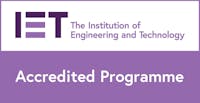
Institution of Engineering and Technology (IET)
CEng accredited by the Institution of Engineering and Technology (IET), fulfilling the educational requirements for Chartered Engineer when presented with an accredited MSc. In addition, the programme meets the educational requirements for registration as an Incorporated Engineer.
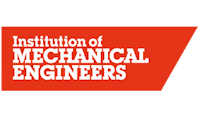
Institution of Mechanical Engineers (IMechE)
- The accredited BEng (Hons) will meet, in part, the exemplifying academic benchmark requirements for registration as a Chartered Engineer and Students will need to complete an approved format of further learning pursuant to the requirements of UK-SPEC.
- The accredited BEng (Hons) will also automatically meet in full, the exemplifying academic benchmark requirements for registration as an Incorporated Engineer (IEng).
- The accredited MEng full meets the exemplifying academic benchmark requirements, for registration as a Chartered Engineer (CEng).
Employability
Enhancing your employability skills
Our course is highly respected by the industry. Our graduates typically enter work with blue chip engineering companies, and are expected to progress to Chartered Engineer status.
When you study with us you’ll learn all the key aspects of automotive engineering that will help you to get a job and you’ll have the intellectual, technical and personal qualities needed to implement new technologies in the automotive engineering sector.
Wherever possible, we involve employers in curriculum planning and many of our lecturers come from and maintain their links with industry, ensuring they maintain their knowledge of the latest developments.
This strong partnership means you benefit throughout your time with us, because you have access to some of the world’s leading car companies, including Bentley, Morgan, Jaguar Land Rover and Ford.
It’s why many of our graduates have gone on to start very successful careers in a wide variety of roles in the industry, in areas ranging from development or design and performance engineering to automotive marketing.
Placements
We aim to have you employer-ready by the time you graduate, and as part of this commitment we encourage you to further enhance your career prospects by including an industrial placement in your course.
You will do your placement after the second year of study, which will extend the duration of your course to four years if you are studying on a full-time basis, and you’ll be supported throughout your time away.
Thanks to our excellent partnerships and strong relationships with industry, you could join the ranks of our students who have gained exceptionally high quality work experience at companies including Bentley.
A step on the career ladder
Thanks to our methods of teaching and learning, as well as our strong industry links and academic staff that can draw on years of relevant industry practice, our graduates typically go on to start careers in the motorsport, aerospace, and automotive industries. Your skills will be in high demand from SMEs working in the supply chain up to multinational companies.
International
Birmingham City University is a vibrant and multicultural university in the heart of a modern and diverse city. We welcome many international students every year – there are currently students from more than 80 countries among our student community.
The University is conveniently placed, with Birmingham International Airport nearby and first-rate transport connections to London and the rest of the UK.
Our international pages contain a wealth of information for international students who are considering applying to study here, including:
- Explore some of the good reasons why you should study here.
- Find out how to improve your language skills before starting your studies.
- Find all the information relevant to applicants from your country.
- Learn where to find financial support for your studies.
Facilities & Staff
Our Facilities
The Department of Engineering provides the perfect setting for practical work with modern-day teaching and learning facilities. We pride ourselves on equipping our students with the skill set that they need not only working on industry standard equipment, but having industrial links, which set them up perfectly for a career in engineering.
We are currently undertaking a £400 million investment programme in our facilities, including a major expansion of our City Centre Campus. As part of this, our facilities in Millennium Point have undergone a £6.5 million investment to include a new maker area, engineering labs and equipment.
We have invested in industry-standard facilities to support the practice-based elements of our Engineering courses and give students as much practical learning as possible, to prepare for industry placements and job opportunities after graduation. Students have access to our facilities during classes, and can book out of class sessions with our specialist technicians.
We are a partner of the Greater Birmingham and Solihull Institute of Technology (GBSIoT) and have secured £1.1 million of government funding for investment in brand-new equipment and facilities. Funding of £808,000 from the Department for Education has supported our development of an Electric Vehicle (EV) Test Rig, an Additive Manufacturing Machine (3D printer) and a material testing-split zone furnace.
The IoT has enabled procurement of new technologies for material testing, electronics prototyping and production and 3D scanning to compliment computer aided design for manufacture
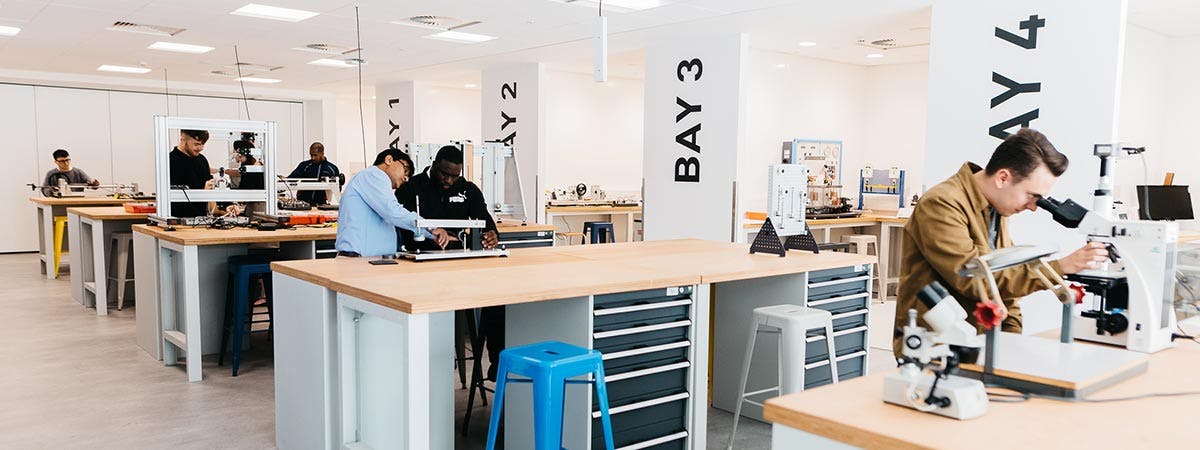
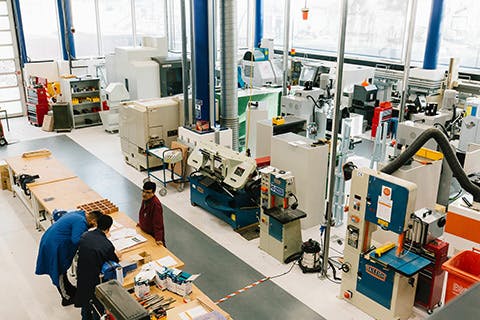
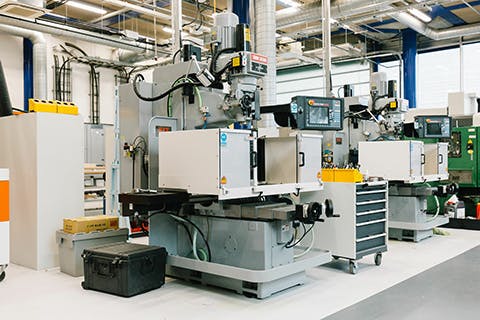

Our staff
Man-Fai Yau
Senior Lecturer
Man-Fai has 10 years' experience in private sector industry, two years' with a Knowledge Transfer Partnership (KTP) and 12 years' university lecturing.
More about Man-FaiDr Richard Cornish
Senior Lecturer
Dr Richard Cornish is an Automotive Engineer with a wide experience of automotive research and development, especially developing test methods and models to capture new practical knowledge and theoretical insights. His areas of expertise include simulation, test, measurement, durability, fatigue and product perception, and he has worked on CAS,...
More about RichardFlorimond Gueniat
Senior Lecturer in Automotive Engineering and Course Leader for MSc Automotive Engineering
Florimond Guéniat has a PhD in fluid mechanics and computer science from Univ. Paris Sud. He then spent two years in the Department of Mathematics, at Florida State University researching on the control of fluid flows.
More about FlorimondDr Olusegun Ilori
Senior Lecturer in Mechanical Engineering
Olusegun received his PhD (Applied Thermal Fluid Sciences and Engineering Simulation) from University of Leeds after a successful viva at the prestigious Osney Thermofluids Lab (now Oxford Thermofluid Institute), University of Oxford.
More about OlusegunJens Lahr
Senior Lecturer for Automotive and Mechanical Engineering
Jens is a senior lecturer for BEng/MEng Automotive and BEng/MEng Mechanical Engineering. His teaching includes the subjects of Finite Element Analysis, Structural Analysis and Powertrain Performance. He helps and supports practice-based learning (CDIO).
More about Jens